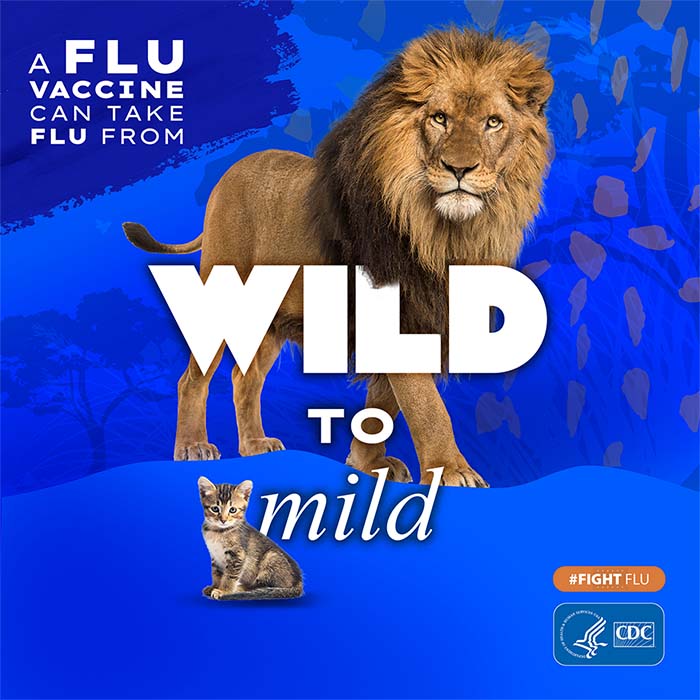CDC Recommendations for Influenza Antiviral Medications Remain Unchanged

February 7, 2012 — A recent review of randomized clinical trial data for the influenza neuraminidase inhibitor antiviral medications published by the Cochrane Collaboration, and two related commentaries [“Rethinking credible evidence synthesis” and “Questions Remain over safety and effectiveness of oseltamivir”] published in the British Medical Journal, raised questions about the value of antiviral medications for the prevention and treatment of influenza. After careful consideration of all available evidence, CDC guidance on the use of antiviral medications remains unchanged. The Centers for Disease Control and Prevention (CDC) continues to recommend the use of the neuraminidase inhibitor antiviral drugs (oral oseltamivir and inhaled zanamivir) as an important adjunct in the prevention and treatment of influenza.
The Cochrane review assessed unpublished and published data from randomized controlled trials (RCTs) of oral oseltamivir or inhaled zanamivir versus placebo for early treatment (within 48 hours after illness onset) or chemoprophylaxis of uncomplicated seasonal influenza in otherwise healthy adults and children. The review concluded that in adults and children with influenza-like illness, early oseltamivir treatment shortens the duration of symptoms by approximately 21 hours compared to placebo. This finding is similar to results in published RCTs which reported a reduction of approximately one day of laboratory-confirmed influenza illness by early oseltamivir treatment. One RCT in children aged 1 to 3 years with influenza found a reduction of 3.5 days when oseltamivir treatment was started within 24 hours after illness onset. The Cochrane review was unable to reach conclusions about the efficacy of oral oseltamivir or inhaled zanamivir treatment to reduce health complications, including those which might result in hospitalization. The review authors reported that they did not have full access to all unpublished data for oseltamivir RCTs as requested from the manufacturer.
A systematic review of RCTs should include unpublished and published data, and researchers should have full access to these data. However, such a review may not fully inform the question of whether antiviral treatment reduces severe influenza complications such as those resulting in hospitalization in generally healthy persons because enormous numbers of participants are needed. The burden of influenza disease is greatest among the elderly, persons with underlying medical conditions such as chronic obstructive pulmonary disease, asthma, congestive heart failure, diabetes, pregnant women, and young children. These groups are at highest risk for developing severe complications from influenza resulting in hospitalization or death, and generally have not been studied in RCTs.
The Cochrane review did not consider any data from uncontrolled observational studies of oseltamivir treatment. While such studies have inherent design limitations, they can inform clinical practice and public health, especially when data from RCTs are unavailable or have not been conducted among high-risk groups or hospitalized influenza patients, or because having a placebo group would be unethical since antiviral treatment is recommended for these groups. Indeed, many observational studies of antiviral treatment of seasonal influenza or influenza A (H1N1) pdm09 (2009 pandemic H1N1) have been conducted among hospitalized patients, including critically ill children and adults. These observational studies from many countries have consistently found that early oseltamivir treatment of influenza patients reduces the duration of hospitalization and risk of severe outcomes such as intensive care unit admission or death. These studies have reported that clinical benefit is greatest when oseltamivir treatment is started within 48 hours of illness onset; however clinical benefit has still been observed when oseltamivir treatment is started up to less than 5 days after illness onset.
The Advisory Committee on Immunization Practices (ACIP) and CDC consider all of the published evidence available from RCTs and observational studies, including safety data, when issuing recommendations on antiviral treatment of influenza. These ACIP and CDC recommendations emphasize early antiviral treatment as soon as possible for patients who are severely ill and for those who are at greatest risk for complications from influenza. This includes hospitalized patients with suspected or confirmed influenza, those with severe or progressive illness, and outpatients who are at high risk for influenza complications (for example, young children, people 65 and older, pregnant women, and persons with certain underlying chronic medical conditions). In addition, because reviews of RCTs and observational studies have found consistent clinical benefit of early oseltamivir treatment in reducing the risk of lower respiratory tract complications such as those requiring antibiotics, persons with uncomplicated influenza who are not in a high risk group and who present within 48 hours of illness onset can be treated with antiviral medications based upon clinical judgment.
CDC estimates that influenza virus infections in the United States result in an average of more than 200,000 related hospitalizations, and between 3,300 to 49,000 deaths each year, depending upon the severity of the influenza season. Annual influenza vaccination of all persons aged 6 months and older is recommended, and is the best way to prevent influenza. However, available evidence for seasonal influenza and 2009 pandemic H1N1 consistently indicates that antiviral treatment, when initiated as soon as possible, can have clinical and public health benefit in reducing severe outcomes of influenza. Therefore, neuraminidase inhibitor antiviral medications continue to be recommended for treatment of influenza.
